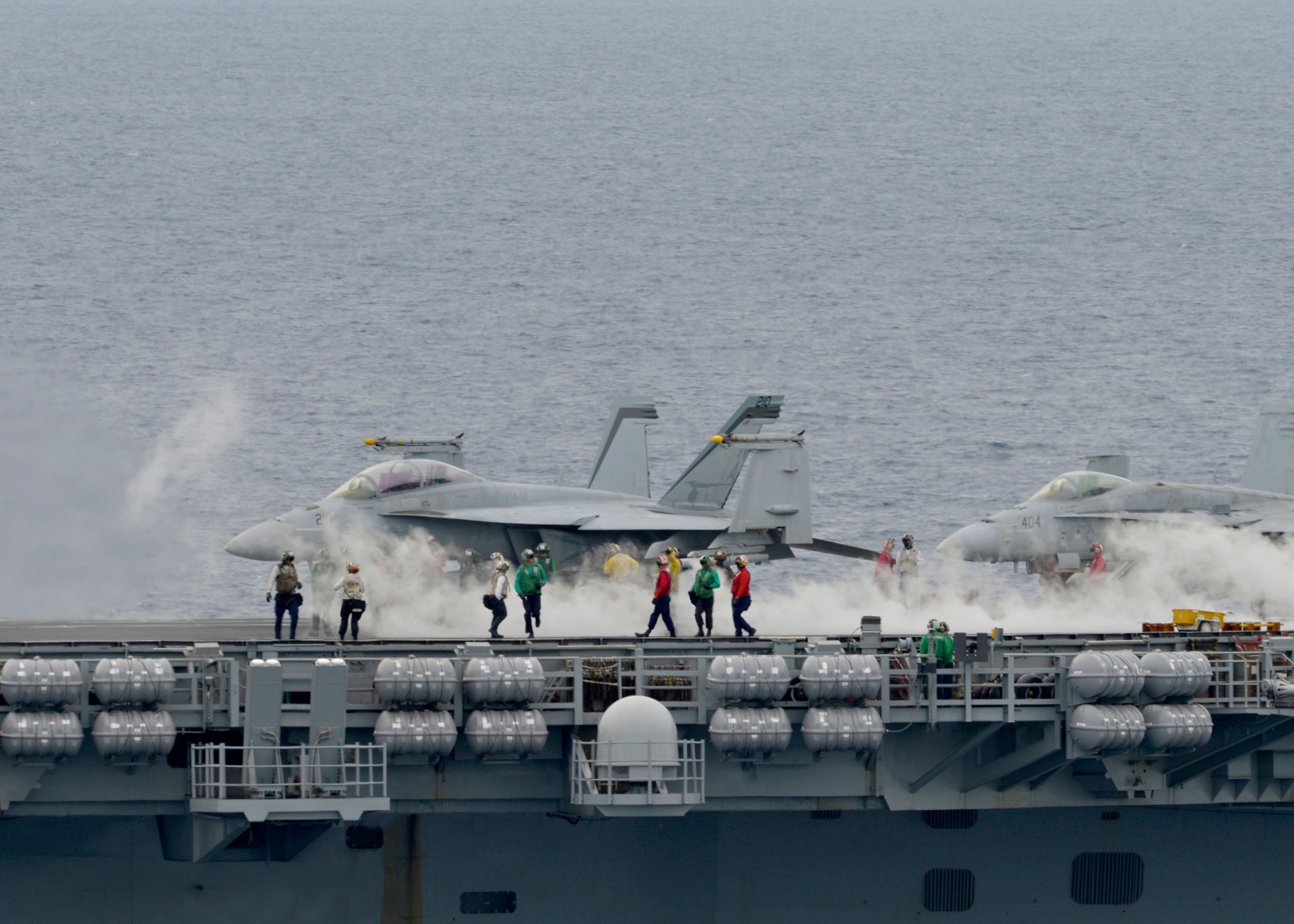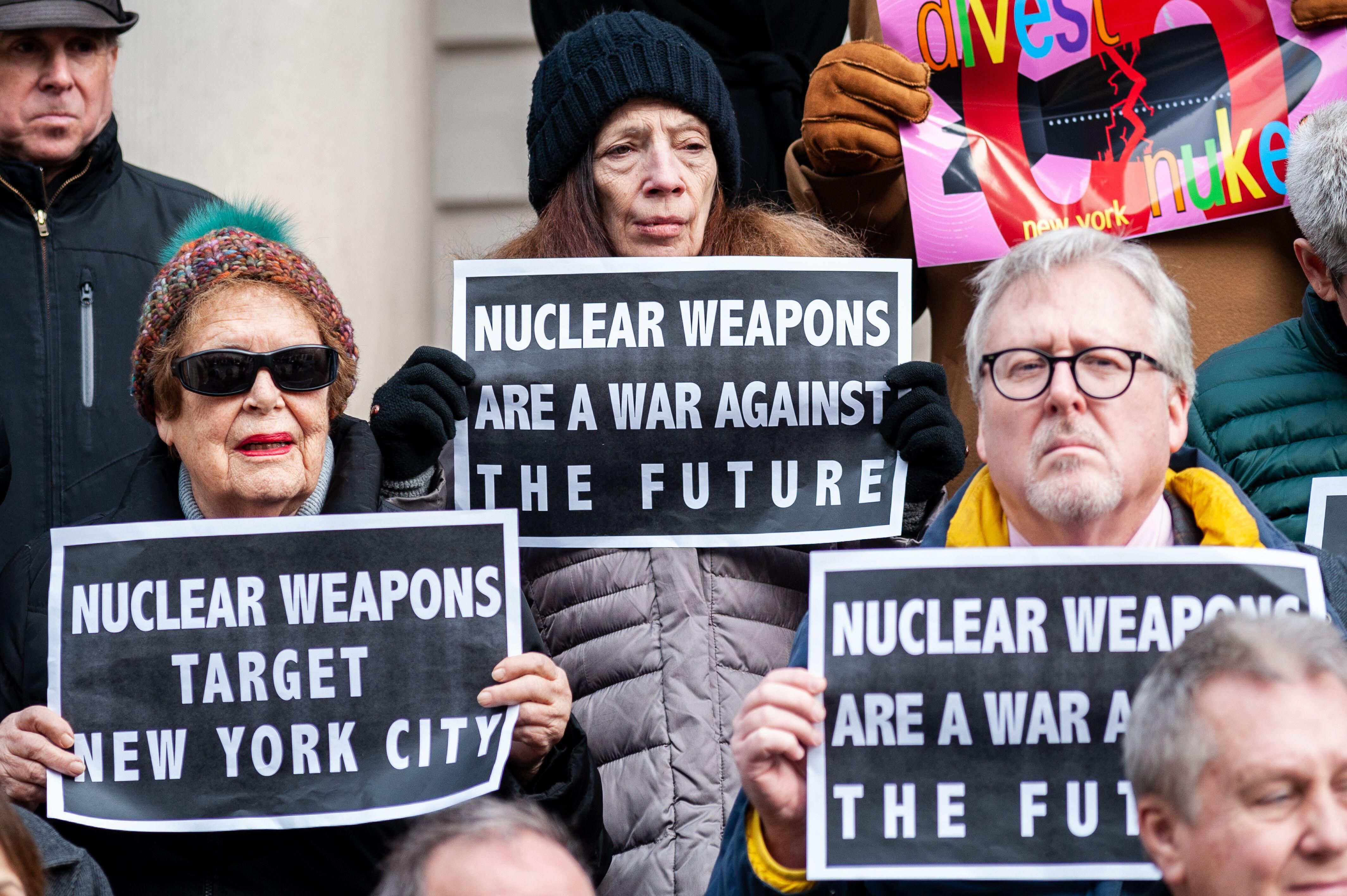The New German Government on Participation in NATO Nuclear Sharing
Germany’s new ruling coalition declares the country’s continued participation in an arrangement on hosting U.S. nuclear bombs, and the replacement of German aircraft to deliver the weapons. Discussion on procurement of the planes might be difficult, however, due to criticism in Germany of nuclear weapons and nuclear sharing by numerous parliamentarians from the coalition parties and possible disputes over the choice of specific aircraft. A delay in the entry into service of the new planes would risk reviving the debate on Germany’s involvement in nuclear sharing.
 Fot. Reuters / Fabrizio Bensch / FORUM
Fot. Reuters / Fabrizio Bensch / FORUM
Under the nuclear sharing arrangement with the U.S., Germany hosts American B61 nuclear bombs, which could be used with U.S. permission in a conflict by the German air force. An estimated 20 out of around 100 Europe-based B61 bombs are in Germany, with the rest hosted most likely by Belgium, Italy, the Netherlands, and Turkey. A number of issues related to nuclear sharing are subject to allied decisions in NATO (including operational planning and exercises). Overall, these mechanisms are intended to strengthen the credibility of deterrence by demonstrating the U.S. determination to use nuclear weapons in defence of its allies, readiness of nuclear-sharing participants to share the risks and costs related to nuclear deterrence, and the unity of NATO in the face of threats, including nuclear ones.
The New Government on Nuclear Sharing
The coalition agreement signed on 7 December 2021 by the SDP, the Greens, and FDP commits the government to quickly purchase a replacement for the Tornado multirole aircraft, which are to be withdrawn from service in 2025-2030. The Tornado is assigned to both conventional tasks and carrying the B61 nuclear bombs. The coalition agreement adds that the government will accompany the procurement and certification process with regard to Germany’s participation in nuclear sharing “objectively and conscientiously”. This signals Germany’s intention to continue its role in nuclear sharing, as confirmed by Chancellor Olaf Scholz (SPD) and foreign minister Annalena Baerbock (Greens).
This position was not a foregone conclusion given criticism by numerous SPD and Greens members of nuclear weapons as immoral and/or by their opposition to Germany’s involvement in nuclear sharing. In the run-up to the election, for example, the chairman of the SPD parliamentary group, Rolf Mützenich, criticised nuclear sharing as a relic of the Cold War that does not benefit Germany or Europe and even risks drawing them into the U.S. confrontation with Russia. Opponents of nuclear sharing called for not buying new nuclear-capable aircraft, halting the U.S.-planned modernisation of B61 bombs in Germany, and eventually withdrawing from nuclear sharing. Ultimately, the conviction about the need to avoid unilateral actions that would weaken NATO prevailed in the coalition talks. This stance was expressed by FDP, some in SPD, and signalled by the Greens in the election programme. The SPD-Greens-FDP agreement reflects the latter in declaring that the coalition “takes seriously” the concerns of Central and Eastern European partners (implicitly referring to concerns with regards to Russia), adding that Germany will maintain a “credible deterrence potential”.
Tornado Replacement Options
The new ruling coalition may confirm or change the plans presented by the defence minister in the previous government (CDU/CSU-SPD), Annegret Kramp-Karrenbauer (CDU). In 2020, she came up with a proposal to replace the Tornado with 40 to 55 Eurofighter Typhoon aircraft manufactured by Germany, Italy, Spain, and the U.K., as well as 30 U.S.-made F/A-18E/F Super Hornets and 15 of their derivatives, the E/A-18G Growler. The plan was to reconcile investments in the German and European defence industry with the continuation of an uninterrupted German contribution to the NATO nuclear mission, which was to be taken over by the Super Hornets. Both Eurofighter and Super Hornet would have to be adapted and certified by the U.S. to carry the B61 bombs, but it would likely take less time for the American-made aircraft. Moreover, the Growlers were to replace Tornados tasked with electronic attack. While a variant Eurofighter is being developed for this role, there were doubts whether it would be ready in time.
The previous government excluded the purchase of the much more modern F-35 (in part due to its stealth characteristics), which is already undergoing certification for a nuclear role. This was partly due to pressure from France and the German defence industry, which feared that investments in the F-35 would prompt Germany to limit its role in the FCAS project, implemented with France and Spain in the development of a next-generation fighter (and unmanned aircraft). Moreover, some in SPD were sceptical of buying any U.S. fighter aircraft, particularly the relatively expensive F-35.
Remarks by new Defence Minister Christine Lambrecht (SPD) on the preference for a “European solution” suggested interest in the purchase of a greater number of Eurofighters. However, given the improvement in German-U.S. relations following the transition from Donald Trump to Joe Biden, purchases of the F-35 cannot be excluded. Media reports state the new government is considering buying F-35s for a nuclear role (instead of the Super Hornets) and wants to study whether Eurofighter can take over the electronic warfare role (instead of the Growlers).
Arms Control and Disarmament
The compromise on Germany’s further involvement in NATO’s nuclear mission is still based on strong support for arms control and disarmament efforts. The new coalition even calls for a “disarmament policy offensive” in various forums. It also signals that the path to the withdrawal of the B61 bombs from Germany runs through a U.S.-Russia agreement. It wants those two countries to include nonstrategic nuclear weapons in their next arms control treaty, and eventually to eliminate such arms altogether. This is close to the 2018 CDU/CSU-SPD coalition deal, which declared that “successful disarmament talks create the conditions for a withdrawal of tactical nuclear weapons stationed in Germany and Europe”.
A new element is the announcement of Germany’s participation as an observer in meetings of state-parties to the 2017 Treaty on the Prohibition of Nuclear Weapons (TPNW). The German government states that it does not intend to join the TPNW, and that its observer status does not weaken German nuclear commitments in NATO. It rather seeks to demonstrate its support for the “intention” of TPNW (that is, nuclear disarmament). Nonetheless, the German decision has stirred controversy in NATO, whose members have jointly criticised the TPNW. The Allies support total nuclear disarmament but point out that the current security environment does not allow for it and that it should be a gradual process, not immediate, as assumed in the TPNW. Some Allies, including the U.S., are concerned that even TPNW observer status by NATO members (apart from Germany, there is also Norway) will be interpreted as support for the assumptions of the treaty and might result in increased political and public pressure for these countries to join the TPNW or at least press for change in NATO policy.
Conclusions
Despite the controversies around the TPNW, the compromise reached in the German coalition agreement is favourable for Poland. A German exit from nuclear sharing would cause a polarising discussion in NATO and could even prompt other countries to leave such arrangements. Although NATO Secretary General Jens Stoltenberg said at the time of the coalition talks that nuclear weapons withdrawn from Germany could end up “to the east” of the country, these remarks should be seen as an attempt to put pressure on Germany to remain in nuclear sharing, as Stoltenberg called for. Such rebasing would be opposed by many NATO members, fearing that this would further escalate tensions with Russia. The Biden administration also could be concerned about the Russian and allied reactions, so it is unlikely that it would approve moving B61 bombs to Poland or another country on NATO’s Eastern Flank. Although the U.S. ambassador to Warsaw suggested in 2020 that Poland could take over this role, the Trump administration also called on Germany to remain in nuclear sharing.
However, it cannot be excluded that there will be delays or even an impasse in the purchase of the Tornado nuclear successor. Coalition parliamentarians opposed to nuclear sharing could still try to block approval of this procurement by the Bundestag. It is an open question as to the extent and for how long their position can be softened by the coalition compromise, especially given that it will be difficult to reach progress in nuclear arms control in Europe. The procurement process also could be complicated by disputes over the choice of specific aircraft and the time needed to certify it. The lack of a timely replacement of the Tornado could risk a revival of the discussion on the desirability of Germany’s further participation in nuclear sharing and would (at least temporarily) weaken NATO’s nuclear capabilities.





_Easy-Resize.com.jpg)